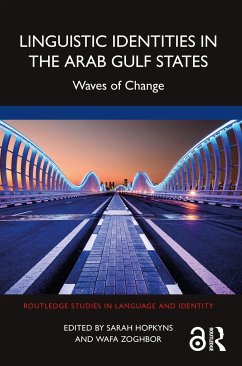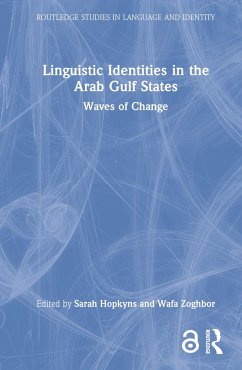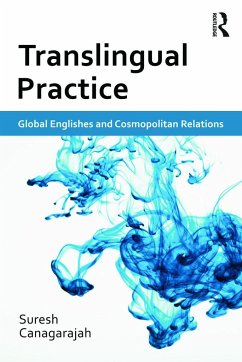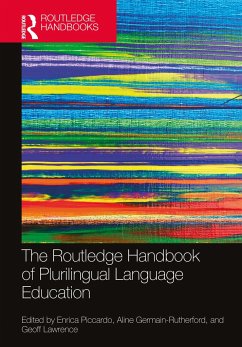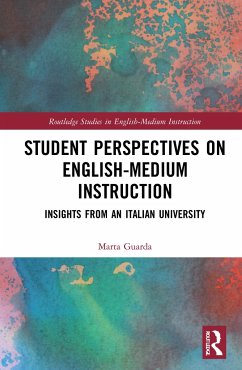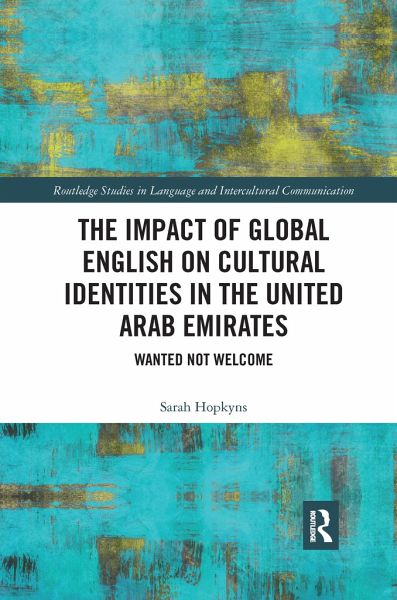
The Impact of Global English on Cultural Identities in the United Arab Emirates
Wanted not Welcome
Versandkostenfrei!
Versandfertig in 6-10 Tagen
46,99 €
inkl. MwSt.
Weitere Ausgaben:

PAYBACK Punkte
23 °P sammeln!
This book provides a nuanced portrait of the complexities found within the cultural and linguistic landscape of the United Arab Emirates, unpacking the ever-shifting dynamics between English and Arabic in today's era of superdiversity. Employing a qualitative phenomenological approach which draws on a rich set of data from questionnaires to focus groups with Emirati students, Emirati schoolteachers, and expatriate university teachers, Hopkyns problematizes the common binary East-West paradigm focused on the tension between the use of English and Arabic in the UAE. Key issues emerging from the ...
This book provides a nuanced portrait of the complexities found within the cultural and linguistic landscape of the United Arab Emirates, unpacking the ever-shifting dynamics between English and Arabic in today's era of superdiversity. Employing a qualitative phenomenological approach which draws on a rich set of data from questionnaires to focus groups with Emirati students, Emirati schoolteachers, and expatriate university teachers, Hopkyns problematizes the common binary East-West paradigm focused on the tension between the use of English and Arabic in the UAE. Key issues emerging from the resulting analysis include the differing attitudes towards English and in particular, English Medium Instruction, the impact of this tension on identities, and the ways in which the two languages are employed in distinct ways on an everyday scale. The volume will particularly appeal to students and scholars interested in issues around language and identity, language policy and planning, multilingualism, translanguaging, and language in education.





